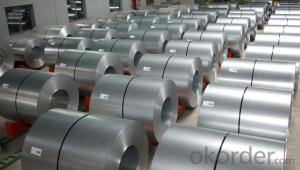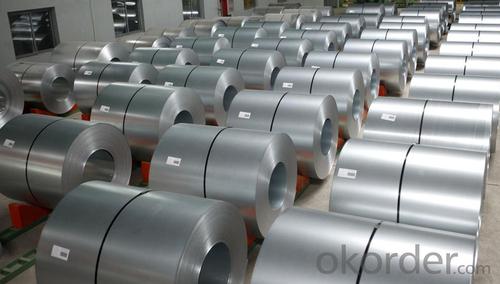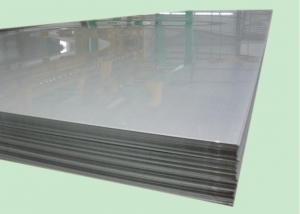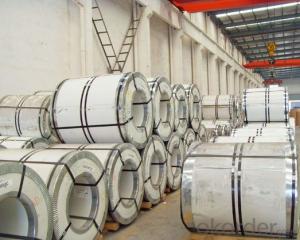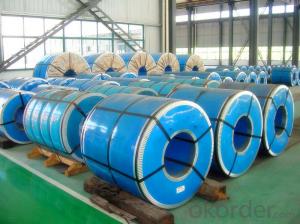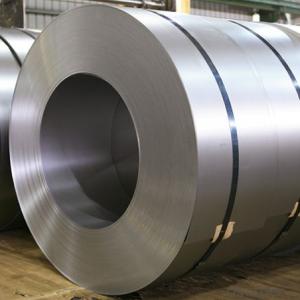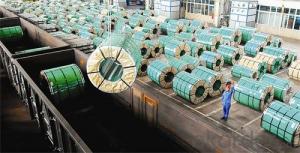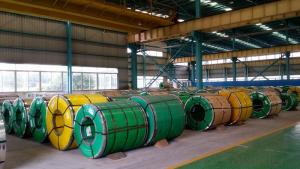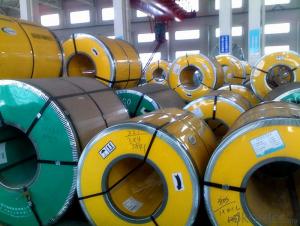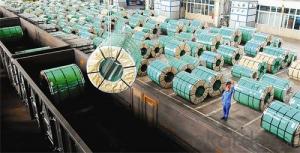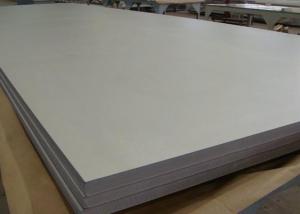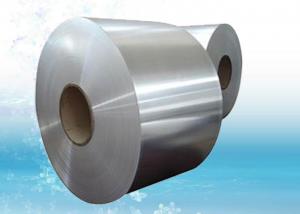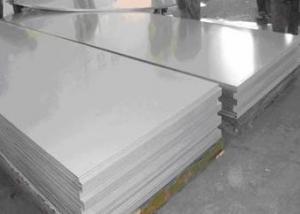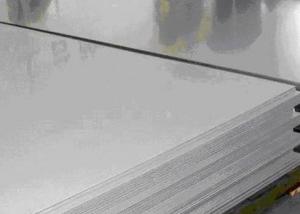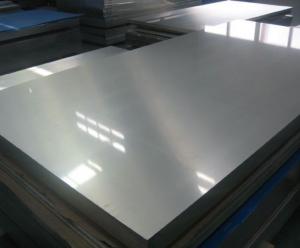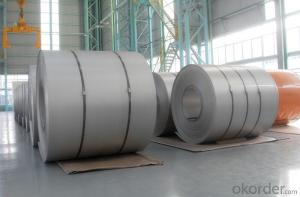Stainless Steel Coil 304 Cold Rolled 2B Finish
OKorder Service Pledge
OKorder Financial Service
You Might Also Like
Stainless Steel Coil 304 Cold Rolled 2B Finish
Packaging Detail:standard export packing or as customer's requirements
Delivery Detail:7-15 days after the order
MOQ: 100mt
Standard: | AISI,ASTM,BS,DIN,GB,JIS | Grade: | 304 | Thickness: | 0.3-3.0mm |
Place of Origin: | China Mainland | Brand Name: | CNBM | Model Number: | 304 |
Type: | Steel Coil | Technique: | Cold Rolled | Surface Treatment: | 2B |
Application: | Medical instruments, building, chemical food industry agriculture | Width: | 500-2000mm | Length: | Coil |
finish: | 2B | item: | 304 cold rolled stainless steel coil | density: | 7.93 |
Stainless Steel Coil 304 Cold Rolled 2B Finish
Chemical composition: |
| ||||||
C | Si | Mn | Cr | Ni | S | P | |
≤0.07 | ≤1.0 | ≤2.0 | 18.0~20.0 | 8.0~11.0 | ≤0.03 | ≤0.035 | |
mechanical properties: |
| ||||||
Tensile strength σb (MPa) | Conditions yield strength 0.2 sigma (MPa) | Elongation δ5 (%) | Section shrinkage (%) | Hardness | |||
520 | 205 | 40 | 60 | ≤1 | |||
- Q: Can stainless steel strips be used in chemical processing?
- Indeed, chemical processing can incorporate stainless steel strips. Renowned for its impressive resistance to corrosion, stainless steel proves to be an ideal material for a multitude of applications within the chemical industry. With its ability to withstand a wide range of aggressive chemicals, acids, and bases, as well as its capacity to endure high temperatures and pressures, stainless steel emerges as a commonly utilized component in chemical processing machinery, including reactors, heat exchangers, storage tanks, and piping systems. Offering durability, dependability, and an extensive lifespan, stainless steel strips are the favored choice for handling corrosive chemicals and upholding product purity during chemical processing operations.
- Q: Can stainless steel strips be used in the production of marine equipment?
- Certainly, marine equipment production can make use of stainless steel strips. Stainless steel is known for its exceptional versatility and resistance to corrosion, making it an ideal option for marine applications. Its exceptional strength, durability, and ability to withstand saltwater make it suitable for an array of marine equipment, including shipbuilding, offshore platforms, marine engines, and propellers. By shaping, welding, and forming stainless steel strips, various components and structures necessary for marine equipment can be created, ensuring dependable and enduring performance even in the challenging marine environment.
- Q: What is the weight of stainless steel strips?
- The weight of stainless steel strips can vary depending on their dimensions and thickness. Generally, stainless steel has a density of about 7.93 grams per cubic centimeter. To calculate the weight of a stainless steel strip, you would need to know its length, width, and thickness. By multiplying the area of the strip by its thickness and density, you can determine its weight.
- Q: Can stainless steel strips be electroplated?
- Certainly, it is possible to electroplate stainless steel strips. Electroplating involves the application of a slender metal layer onto an object's surface through the utilization of an electric current. While stainless steel is already resistant to corrosion, electroplating can augment its visual appeal, offer additional protection against wear and tear, and enhance its conductivity. The procedure encompasses submerging the stainless steel strip into a solution containing metal ions and subsequently applying an electric current, which results in the attraction and deposition of the metal ions onto the strip's surface. This technique can be employed with various metals, like gold, silver, nickel, or chromium, in order to achieve diverse aesthetic or functional qualities.
- Q: What are the common uses of stainless steel strips in the automotive engine components?
- Stainless steel strips are commonly used in automotive engine components for their high strength, corrosion resistance, and heat resistance properties. They are utilized in various applications such as exhaust systems, fuel injectors, valve stems, and gaskets. These strips provide durability and longevity to the engine parts, ensuring efficient performance and protection against harsh operating conditions.
- Q: Are 111 stainless steel strips suitable for chemical reactors?
- Yes, 111 stainless steel strips are suitable for chemical reactors. They possess excellent corrosion resistance, high temperature resistance, and good mechanical properties, making them suitable for handling various chemicals and operating conditions within a reactor.
- Q: What is the average lifespan of stainless steel strips?
- The lifespan of stainless steel strips can differ based on a variety of factors, including the grade and quality of the steel, the environment in which they are used, and the level of maintenance and care they receive. Generally, stainless steel is recognized for its durability and resistance to corrosion, which can contribute to a longer lifespan compared to other materials. In well-maintained and non-corrosive environments, stainless steel strips can endure for several decades. However, if the strips come into contact with harsh chemicals, high temperatures, or abrasive conditions, their lifespan may be reduced. Regular cleaning and maintenance, such as removing accumulated dirt or debris, can also aid in extending the lifespan of stainless steel strips. It is important to understand that the average lifespan is merely an estimation and can fluctuate depending on the specific application and usage circumstances. If you are considering using stainless steel strips for a particular project, it is advisable to seek guidance from a professional who can provide more precise information based on your specific requirements.
- Q: Are stainless steel strips resistant to scaling at high temperatures?
- Yes, stainless steel strips are generally resistant to scaling at high temperatures. Stainless steel is known for its excellent resistance to oxidation and corrosion, making it suitable for use in high-temperature applications. The presence of chromium in stainless steel forms a protective layer of chromium oxide on the surface, which acts as a barrier against scaling, even at elevated temperatures. This oxide layer prevents the metal from reacting with oxygen or other elements in the environment, thus maintaining the integrity and appearance of the stainless steel strip. However, it is important to note that the specific grade and composition of stainless steel can affect its scaling resistance, so it is crucial to choose the appropriate grade for the intended temperature range.
- Q: What are the weight and density of stainless steel strips?
- The weight and density of stainless steel strips may vary based on the particular grade and thickness of the strips. However, in general, stainless steel is a dense material that surpasses the weight of numerous other metals. Stainless steel usually exhibits a density ranging from 7.75 to 8.05 grams per cubic centimeter, a considerably higher value compared to aluminum (2.7 g/cm³) or titanium (4.5 g/cm³). Regarding the weight of stainless steel strips, it relies on the strip's dimensions. To calculate the weight of a stainless steel strip, one must multiply the density of stainless steel by the volume of the strip. The strip's volume can be determined by multiplying its length, width, and thickness. Consequently, to accurately ascertain the weight and density of stainless steel strips, it is crucial to have knowledge about the specific grade and dimensions of the strips in question.
- Q: Are stainless steel strips suitable for pressure piping?
- Yes, stainless steel strips are suitable for pressure piping. Stainless steel is known for its excellent corrosion resistance, high strength, and durability, making it a preferred material for various applications, including pressure piping. Stainless steel strips can withstand high pressure and temperature conditions, making them suitable for use in industries such as oil and gas, chemical processing, and power generation. Additionally, stainless steel strips offer superior resistance to both internal and external corrosion, ensuring the integrity and longevity of the pressure piping system.
Send your message to us
Stainless Steel Coil 304 Cold Rolled 2B Finish
OKorder Service Pledge
OKorder Financial Service
Similar products
Hot products
Hot Searches
Related keywords
